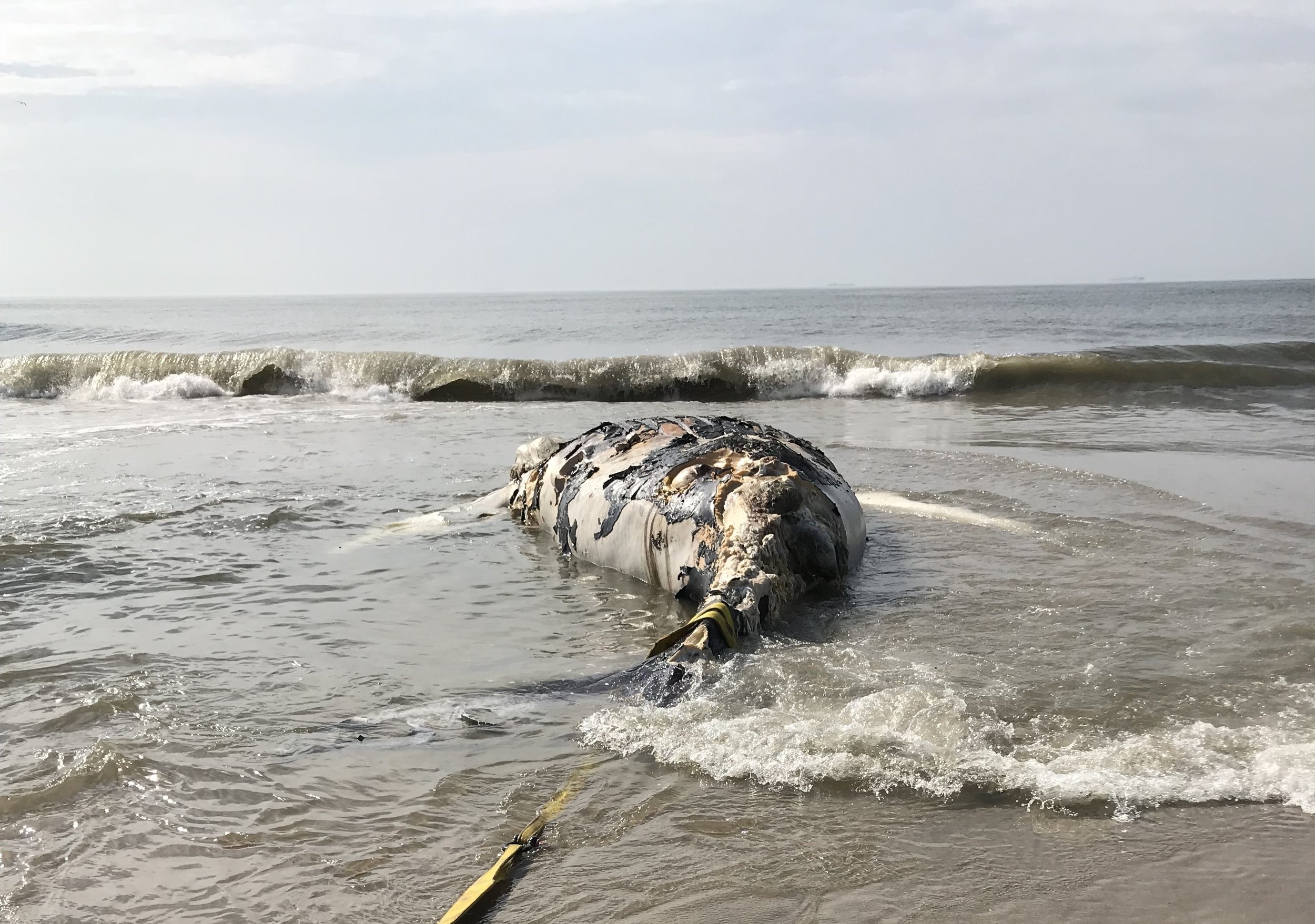4th Stranded Humpback Whale in 2018 Strands in Breezy Point
On Friday, June 1, 2018 Atlantic Marine Conservation Society (AMCS) was made aware of a deceased humpback whale in Breezy Point near the Silver Gull Beach Club. This whale was the fourth humpback to wash up on New York shores and the third one in less than 30 days. The following day, AMCS conducted the necropsy with support from Gateway National Park Service, National Oceanic and Atmospheric Administration (NOAA) Fisheries, NYS Department of Environmental Conservation, and Sea Turtle Recovery to discover what happened to this animal.
The animal was a male, 25 feet in length, and could have been between three to five years of age. The whale was in an advanced state of decomposition and likely died more than two weeks ago. The team found evidence of vessel strike, and samples were taken and sent to a pathologist to help determine a cause of death, results of which may take several months to come back. AMCS is thankful for the support of the other organizations involved, as well as the generosity of the Silver Gull Beach Club in providing a tent and water for the team as they worked.
Evidence of vessel strike has been found in all five whales (one sperm whale, four humpback whales) that have stranded on our shores this year. Since becoming the lead large whale response organization in January 2017, AMCS has responded to 19 large whale strandings, and has assisted in an additional four stranding responses with network partners along the east coast where AMCS necropsy program director Kimberly Durham served as the necropsy team leader. It is important to note that samples are taken during each necropsy to send to a pathologist to help determine a cause of death. These reports may take several months to come back.
National Oceanic and Atmospheric Administration (NOAA) Fisheries declared an Unusual Mortality Event (UME) in effect along the Atlantic Coast in 2016. Today, these strandings remain elevated with a total of 76 strandings along the coast, since January 2016. This includes 12 cases that stranded in New York, nine of which showed evidence of blunt force trauma consistent with vessel strike. You can find more information about the UME on the NOAA Fisheries website here: https://www.fisheries.noaa.gov/insight/frequent-questions-2016-2018-humpback-whale-atlantic-coast-unusual-mortality-event
Many have asked what is being done to help mitigate concerns of vessel strike. Stranding network partners, including AMCS, are investigating environmental conditions and monitoring the populations of these species. Research is essential to our work and allows us to work towards gaining a better understanding of these whales. Because it is the size of the vessels that have interacted with these whales is unknown, all vessels are considered a risk. Rules are in place for larger vessels to reduce speed during high concentrations of right whales, though it does benefit other whale species. For recreational vessels, here’s what the public can do to prevent whale mortalities: https://www.fisheries.noaa.gov/topic/marine-life-viewing-guidelines
Humpback whales, along with other marine mammal species, are federally protected under the Marine Mammal Protection Act. The public should maintain a distance of 150 feet from the animals at all times. If you see a stranded marine mammal, call the NYS Stranding Hotline at 631.369.9829.
Read stories in the news by clicking the name of the publication below:
Daily Mail
NBC
NY Post

